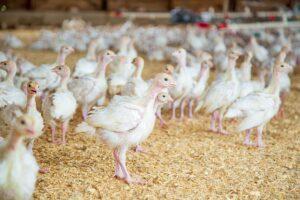Mandatory measures against bird flu have come into force in high-risk counties
Due to the increased risk of bird flu in the autumn period, Dr. Imre Nemes, the national chief veterinarian, has ordered preventive measures in the counties identified as high-risk from October 10. Poultry flocks kept for commercial purposes must be kept indoors, while feeding and watering must be provided indoors on other farms.

(Photo: Pixabay)
The decision of the national chief veterinarian is valid in the high-risk counties: Bács-Kiskun, Békés, Csongrád-Csanád, Győr-Moson-Sopron, Hajdú-Bihar, Komárom-Esztergom and Szabolcs-Szatmár-Bereg. Dr. Imre Nemes prescribed mandatory indoor keeping for poultry kept for commercial purposes, while on farms keeping poultry for other purposes (such as backyard flocks), poultry must be fed and watered indoors. Based on the official procedure issued by the National Veterinary and Animal Health Authority, it is a nationwide regulation that a swab test must be performed on the 4th day after the resettlement of waterfowl flocks placed for stuffing between October 1, 2025 and April 30, 2026. The preventive test contributes to the early detection of possible avian influenza infection. Another important provision is that multi-phase, fattened waterfowl flocks liquidated after October 1, 2025 due to avian influenza disease cannot be re-introduced until the country is free from the disease as recognized by the World Organization for Animal Health. The regulation applies to both the stuffing material and the flocks under stuffing.
Nébih draws attention to the fact that the rules for bird flu compensation have changed from August 15
After this, in the case of poultry final product flocks – with the exception of flocks producing table eggs – the maximum amount of compensation can be determined as 80% of the calculated compensation value. Another important recent change is that if, despite preventive measures, bird flu appears in areas of the country with a high poultry density, the authority determines the size of the surveillance zone ordered around the outbreak based on a risk assessment. In the future, restrictive measures may also come into effect in an area significantly exceeding the mandatory 10 km zone, several times larger. Nébih draws the attention of animal keepers to strict and consistent compliance with epidemic control regulations, as epidemic prevention is in the common interest of the sector and the authority.
Nébih
Related news
Related news
Lidl guarantees fairer prices for cocoa farmers
🎧 Hallgasd a cikket: Lejátszás Szünet Folytatás Leállítás Nyelv: Auto…
Read more >40 secure jobs, sustainable solutions – new BURGER KING® in Csepel
🎧 Hallgasd a cikket: Lejátszás Szünet Folytatás Leállítás Nyelv: Auto…
Read more >







